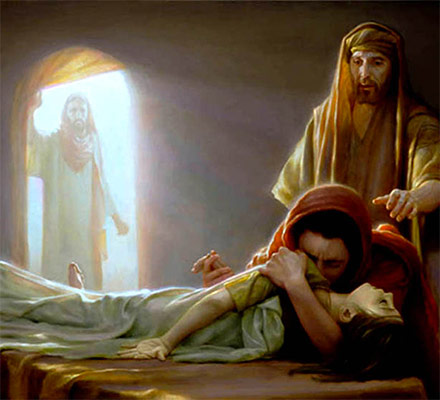Today’s First Reading recalls a division between the Northern and Southern Kingdom, a division of the people of Israel after King Solomon’s passing due to a dispute about taxation between Solomon’s successor, Rehoboam, and the king of the new Northern Kingdom, Jehoboam. The Lord told Rehoboam when he tried to intervene militarily and force reunification that the Lord had willed the division, a punishment due to King Solomon’s infidelity.
Jehoboam has received a mandate from the Lord. However, he does not trust the Lord, and is worried that the people will seek to reunite with Rehoboam because they still must go to Jerusalem on pilgrimage to worship at the splendid Temple David had commissioned and Solomon had finished. He decides to establish new places of pilgrimage and worship in his territory, but also to abandon the worship of the Lord in those places. Therefore, as today’s account concludes, Jehoboam’s lineage, initially sanctioned by the Lord, will end, due to his iniquity: he led his entire people into idolatry for political motives.
Our Lord when pressed about taxation said to render unto Caesar what is Caesar’s, and unto God what is God’s (see Mark 12:17, Matthew 22:21, Luke 20:25). Let’s learn today from Jehoboam’s fate to never try to use religion or God to serve our own selfish interests.
Readings: 1 Kings 12:26–32, 13:33–34; Psalm 106:6–7b, 19–22; Mark 8:1–10. See also 1st Week of Advent, Wednesday and 17th Sunday in Ordinary Time, Cycle B.


